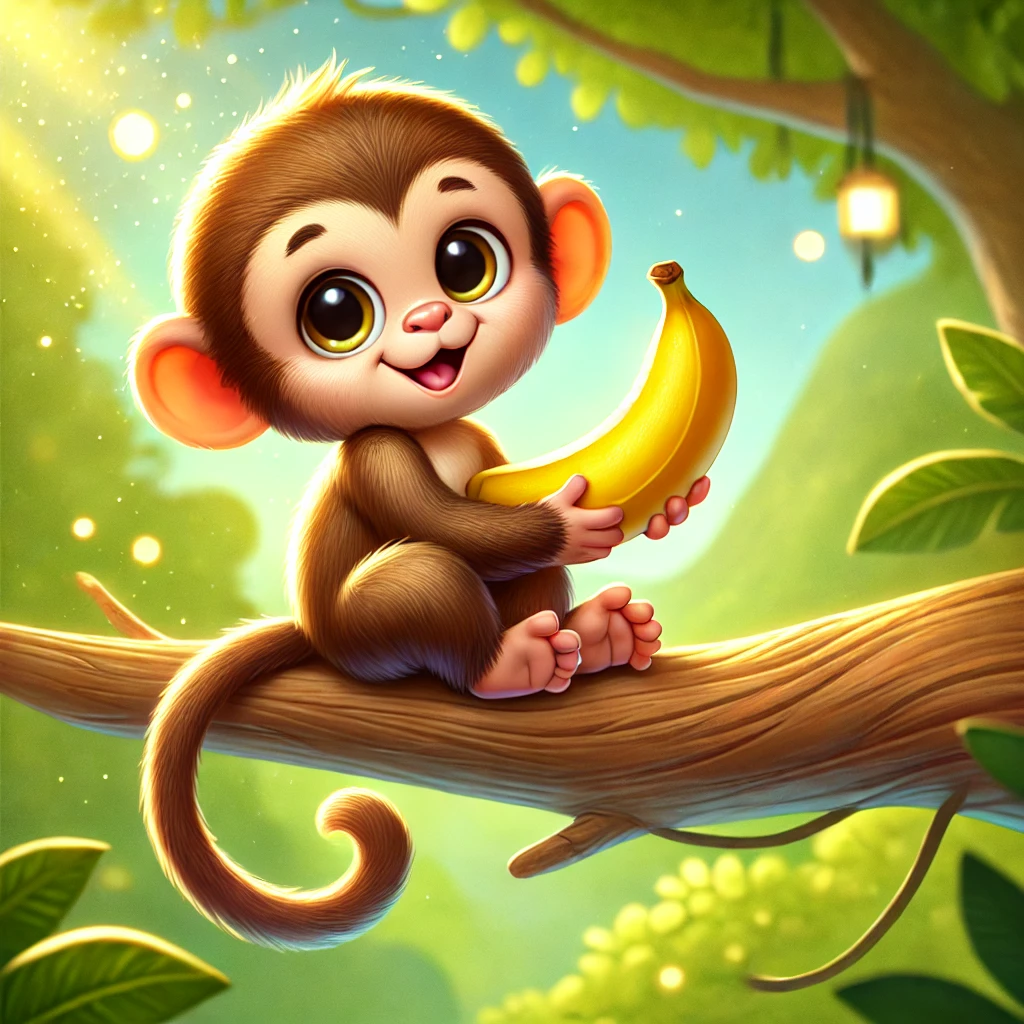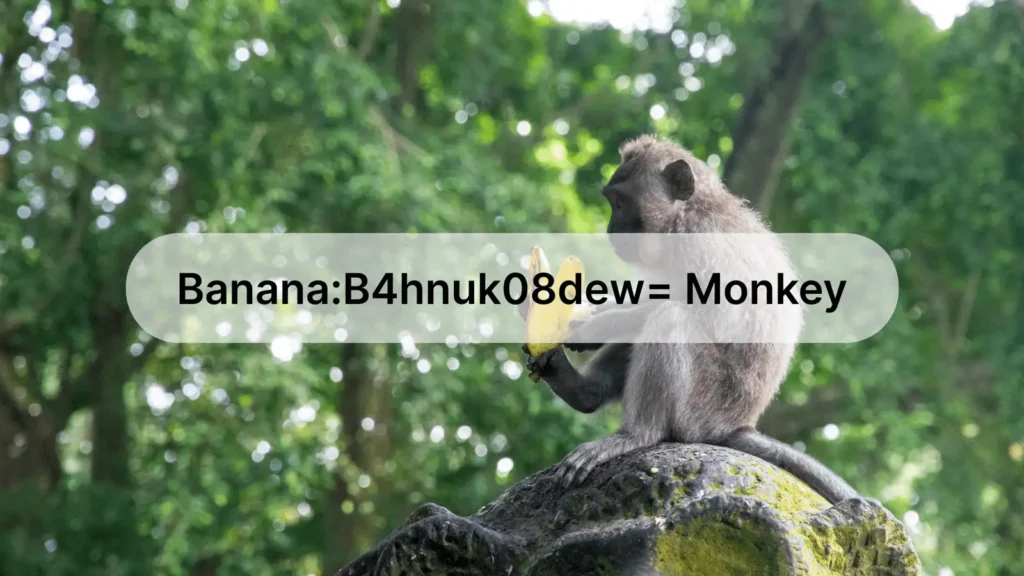Explore the fascinating relationship of banana:b4hnuk08dew= monkey, unraveling how bananas impact monkeys’ diet, behavior, and evolution. Discover the details here.
Introduction
Bananas and monkeys have a unique and long-standing association in popular culture and nature. From cartoons to zoological studies, the image of a monkey holding a banana is instantly recognizable. However, with the introduction of the term “banana:b4hnuk08dew= monkey,” there’s a new level of intrigue surrounding this relationship. What does this keyword really mean, and how does it relate to the real-world connection between bananas and monkeys?
In this article, we will explore everything you need to know about the keyword “banana:b4hnuk08dew= monkey,” examining the natural affinity of monkeys for bananas, their role in the diet and evolution of primates, and the scientific understanding behind this connection.
What is Banana:b4hnuk08dew= Monkey?

The keyword “banana:b4hnuk08dew= monkey” may seem cryptic, but it signifies the core relationship between bananas and monkeys. This keyword could be seen as a symbolic or coded representation of how bananas and monkeys are intertwined both in nature and in our cultural imagination.
- “Banana”: The tropical fruit rich in potassium and carbohydrates, a common part of both human and animal diets.
- “b4hnuk08dew=”: This part may refer to a code or specific identifier, possibly representing an evolutionary or biological marker tied to monkeys’ dietary habits or cultural connections.
- “Monkey”: Refers to the primate species known for their agility, intelligence, and omnivorous diet, which includes fruits like bananas.
While the exact meaning of “b4hnuk08dew=” may not be immediately clear, its usage in the phrase highlights the fascinating relationship between bananas and monkeys, prompting deeper inquiry into this connection.
Why Do Monkeys Love Bananas?
Monkeys are known for their love of fruit, and bananas are often thought of as their favorite. There are several reasons why bananas appeal to monkeys:
1. High Nutritional Value:
Bananas are rich in essential nutrients like potassium, vitamin C, and dietary fiber, making them a perfect source of energy for primates. The quick release of sugars helps monkeys maintain energy levels while foraging and moving through the forest.
2. Easy to Eat:
Bananas come in their own “packaging,” with a peel that’s easy for monkeys to remove. Their soft texture and sweet taste make them a convenient and enjoyable food for primates.
3. Availability in the Wild:
In many tropical regions where monkeys are found, banana plants grow abundantly. Monkeys often come across wild bananas in the forest, integrating them naturally into their diet.
The Role of Bananas in Monkey Evolution
The consumption of fruits, including bananas, has played a significant role in the evolution of monkeys and other primates. Here’s how:
1. Dietary Adaptation:
Primates evolved with a preference for ripe fruits because of the energy they provide. Over time, their digestive systems have adapted to process high-sugar foods like bananas, allowing them to thrive in their natural environments.
2. Brain Development:
The glucose in fruits like bananas fuels the brain, providing a cognitive edge for species like monkeys. This steady energy supply may have contributed to the development of higher intelligence in primates, particularly in problem-solving and social behaviors.
3. Tool Use and Food Acquisition:
While most wild monkeys don’t rely solely on bananas, they have been observed using tools and strategies to obtain various fruits. This indicates the broader role of fruit consumption in the development of complex behaviors, including food acquisition techniques.
Understanding the Symbolism of Banana:b4hnuk08dew= Monkey
Beyond the dietary aspect, “banana:b4hnuk08dew= monkey” could reflect deeper symbolic meanings:
1. Cultural Representation:
In literature, art, and popular media, bananas are often associated with monkeys. Cartoons frequently depict monkeys gleefully munching on bananas, reinforcing this connection. This has led to the widespread idea that monkeys and bananas are inseparable, though in reality, their diets are more diverse.
2. Scientific and Research Implications:
The keyword might also suggest a specific research study or code related to monkey behavior or diet involving bananas. Many scientific studies use specific codes to reference certain experiments, genetic markers, or dietary patterns in monkeys.
How Bananas Affect Monkey Behavior
While bananas are nutritious, they can also influence monkey behavior in interesting ways:
1. Energy Boost and Activity Levels:
Due to their sugar content, bananas provide a quick burst of energy. Monkeys consuming bananas tend to show increased activity, which could be advantageous for foraging and social interactions.
2. Social Dynamics:
In captivity, bananas are often used as treats for monkeys. This can lead to competition, as dominant monkeys may try to hoard bananas, showcasing the social hierarchy present within groups.
3. Captivity vs. Wild Behavior:
In the wild, monkeys consume a varied diet that includes leaves, insects, and fruits. However, in captivity, they are often fed bananas more frequently. This can alter their natural behaviors and lead to dependency on human-provided food.
Conclusion
The relationship encapsulated by the term “banana:b4hnuk08dew= monkey” highlights both the literal and symbolic connections between these primates and their favorite fruit. While bananas are an essential part of a monkey’s diet in some environments, their consumption also plays a role in our understanding of primate evolution, behavior, and culture.
Bananas provide nutritional benefits that have helped monkeys thrive over millennia. Beyond nutrition, the symbolic association between monkeys and bananas is deeply rooted in human culture, reminding us of the long-standing link between these fascinating creatures and their favorite snack.
FAQs on Banana:b4hnuk08dew= Monkey
Q1: Do all monkeys eat bananas?
- Not all monkeys eat bananas regularly, especially in the wild. While bananas are a part of the diet for some species, wild monkeys typically have a more diverse diet, including fruits, leaves, insects, and seeds.
Q2: What does “banana:b4hnuk08dew= monkey” represent?
- “Banana:b4hnuk08dew= monkey” could symbolize the close relationship between bananas and monkeys, possibly in a scientific or cultural context. The exact meaning of “b4hnuk08dew=” is unclear but may refer to a specific code or marker in research or evolutionary studies.
Q3: Are bananas healthy for monkeys in captivity?
- Yes, bananas provide valuable nutrients for monkeys, especially in captivity. However, overfeeding them with bananas, which are high in sugar, can lead to health issues. A balanced diet that mimics their natural food intake is essential for their well-being.
Q4: How do bananas impact monkeys’ evolution?
- Bananas, like other fruits, have contributed to the dietary adaptation of monkeys. The high sugar content in fruits fuels brain development and energy levels, which could have been key factors in the evolutionary success of primates.
Q5: Is the association between bananas and monkeys just a myth?
- While not entirely a myth, the association is exaggerated. In the wild, monkeys eat a variety of foods, and bananas may not be as central to their diet as often depicted in popular culture.
In conclusion, the keyword “banana:b4hnuk08dew= monkey” captures both the literal and symbolic significance of bananas in the lives of monkeys, touching on nutrition, behavior, and the broader cultural association between these two.


